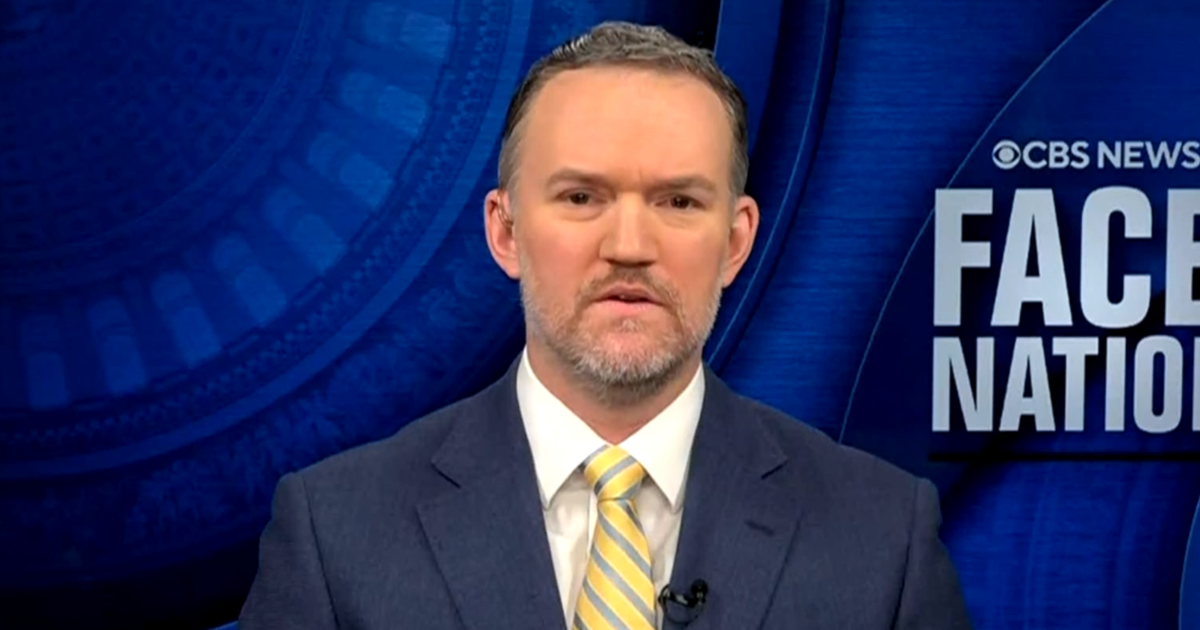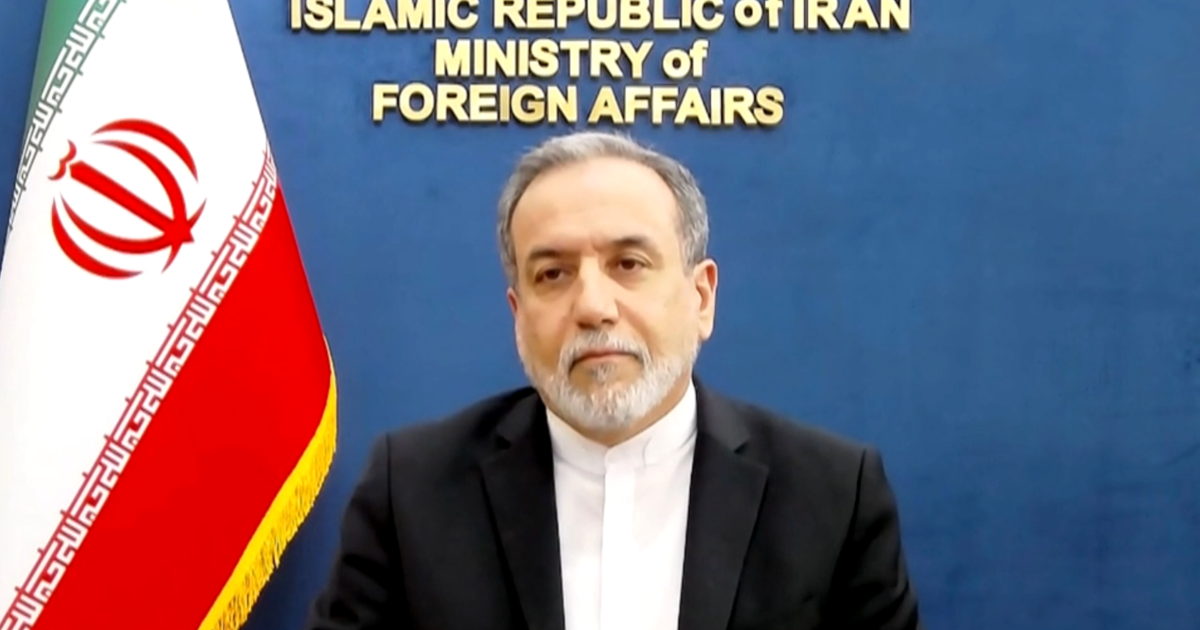Transcript: Representative Adam Schiff on "Face the Nation," March 6, 2022
The following is a transcript of an interview with Democratic Representative Adam Schiff of California that aired Sunday, March 6, 2022, on "Face the Nation."
MARGARET BRENNAN: Welcome back to FACE THE NATION. We now want to go to House Intelligence Committee Chairman Adam Schiff. He's a Democrat from California and joins us from the Los Angeles area. Good morning to you.
REPRESENTATIVE ADAM SCHIFF: Good morning.
MARGARET BRENNAN: I want to start on Ukraine. The United States purchases about 600,000 barrels of Russian petroleum products a day. Speaker Pelosi said that oil should be banned. The White House says it's looking at options. What is that option? Does a solution come from Congress or is this something President Biden needs to act on?
REP. SCHIFF: I think it could come from either place. I think there's very strong bipartisan support to cut off Russian oil and gas sales to the United States. It's anathema, I think, to many of us in Congress that while we were sanctioning them and trying to cripple their economy that way would help them in any way by purchasing their petroleum. But I think the administration wants to make sure that we work with our allies. This will have an impact to- potentially on global oil prices, including here at home, where in Los Angeles now gas is over $5 a gallon. So he wants to make sure that we understand the impact on the global supply. But I think there is strong support to show solidarity with Ukraine, but also to make sure that American dollars aren't supporting the Russian war machine in any way.
MARGARET BRENNAN: How quickly does that need to happen? I mean, this is Putin's lifeline. It's a cash cow.
REP. SCHIFF: Well, I think we like to act on it very quickly. At the same time, you know, we have to be circumspect about the fact that Russia will probably find somewhere else to sell that oil and gas to. So the impact ultimately on Russia may not be as powerful as we would like. It's why we have to continue to explore additional ways to really crush the Russian economy. But I have to say I'm enormously impressed with how the world has come together with how here in Congress, in a very partisan Congress, Democrats and Republicans are uniting around this tough sanction package, as well as providing more defensive military support to Ukraine. There is enormous solidarity with the brave people of Ukraine.
MARGARET BRENNAN: There is solidarity, but it seems that Vladimir Putin is willing to suffer the consequences of those sanctions. And the Russian people are, the military is not stopping its advance, at least that we can see. what will happen if, as President Zelensky is predicting he loses his life in this Russian attack, what will the United States do then?
REP. SCHIFF: Well, he has, I think, been an incredibly courageous wartime leader. This was, I believe, another miscalculation by Putin, who believes Zelensky was weak, would not be able to lead a country to war. But in fact, he has proved to be enormously strong and not only rallied Ukrainians, but I think rallied people around the world. I don't want to contemplate what might happen in his absence, although I do think the Ukrainian people will fight on and we will continue to support them. But obviously, we're doing everything we can, supplying, I think, real time intelligence to help protect him, as well as to give Ukrainians the information they need to defend themselves.
MARGARET BRENNAN: The U.S. and global powers, as we spoke to Secretary Blinken about, are potentially on the cusp of a new diplomatic deal with Iran, a renewed version of this nuclear program should the Biden administration present that to Congress for review? Do you want to take a look at it?
REP. SCHIFF: Well, I'm certainly going to want to look at it and study it and assess the merits of it. I think it will come down ultimately to whether it is a, essentially re-entering the deal that the Trump administration pulled America out of or it is substantially different- new and different deal. If it's the latter then I think it will require a vote in the Congress. If- if it's the former, then the administration may be able to do that on its own. Ultimately, I think the decision to pull out was disastrous. Iran has moved forward both in terms of its enrichment, but also in terms of its expertise. And ultimately, we're going to have to weigh the impact of that on any new agreement.
MARGARET BRENNAN: You are the chair of intelligence, you know, well, Iran's espionage activities and the operations they've tried to carry out on US soil, including this attempt to kidnap a New York based journalist. There are also threats against former Secretary of State Mike Pompeo and other Trump officials. Should this new deal with Iran include a promise to stop carrying out those kind of operations on U.S. soil?
REP. SCHIFF: Well, I would love a nuclear deal to include prohibitions on Iran's malign activities, a cessation of its missile and drone program. But the question is not what I would like, but rather whether a deal that is confined to curbing Iran's ability to get a bomb is a good deal. And I think if we can take off the table, any pathway to a bomb for year- for Iran, that in itself is worthwhile. These other malign activities of Iran's, their plots against the U.S. personnel or Americans around the world we can deal with and have to deal with separately, and we should deal with them aggressively. But I wouldn't say that we should neglect to stop their nuclear program because of these other activities. We need to go after all of this, not necessarily in one agreement.
MARGARET BRENNAN: Before I let you go, I want to ask about the January six committee. There was a development this week, a court filing claiming there is now evidence that President Trump broke the law in his efforts to overturn the election in 2020. Do you think that the attorney general is moving fast enough with his enforcement?
REP. SCHIFF: What we made clear in our filing to the court is we believe there's a good faith basis to conclude that the former president and his campaign may have violated any number of federal laws, including obstructing an official proceeding, the joint session, and defrauding the American people. And I do think that the Justice Department ought to be looking at these issues and ought to be investigating in particular just to give one very graphic example the former president on the phone with the secretary of state in Georgia demanding that he find 11,780 votes that didn't exist, but the precise number he would need to overtake President Biden. I think if anyone else had engaged in that conversation, they would be under investigation and it should be no different for the former president. So I think the department is diligently pursuing those who attack the Capitol that day. But there were multiple lines of effort to overturn the election that may have violated the law, which also should be investigated.
MARGARET BRENNAN: All right. Chairmanship, thank you for your time this morning. We'll be right back.



